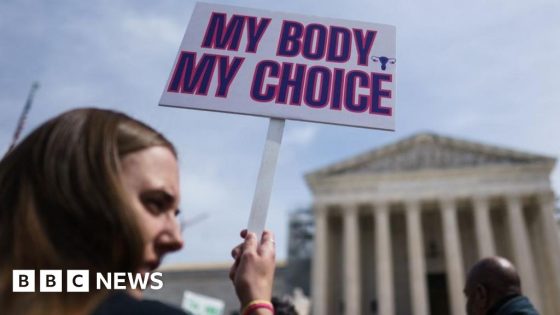In 2001, a Vietnam-era student radical named David Horowitz decided to once again start causing trouble on campus. A few years earlier, several scholars and activists had begun to argue that the U.S. should pay reparations to descendants of slaves. Horowitz, whose politics had taken a sharp right turn since the 1960s, thought that this was a very bad idea. So he contacted several college newspapers, seeking to place a full-page ad, during Black History Month, titled, “Ten Reasons Why Reparations for Slavery Is a Bad Idea—and Racist Too.”
The ad, which had been adapted from a Salon column he had published the previous year, seemed designed to stir passions on the campuses where it ran. In it, Horowitz deemed reparations “an extravagant new handout that is only necessary because some blacks can’t seem to locate the ladder of opportunity within reach of others”; argued that “the reparations claim is one more assault on America, conducted by racial separatists and the political left”; and asked the question: “What about the debt blacks owe to America?”
Horowitz’s inflammatory arguments were not very well received. Many of the newspapers to which Horowitz submitted the ad rejected it entirely. At Brown University, angry students stole thousands of newspapers in which the ad had been printed. At the University of California, Berkeley, students marched on the offices of the student newspaper, prompting its editor in chief to publicly apologize for running the ad in the first place. The mainstream media soon picked up on the furor, and the ensuing press attention ended up making all of the students involved look like twits, while giving Horowitz exponentially more attention than the ads alone would have in the first place.
Perceptive observers surmised that this had been his goal all along. In addition to his position on reparations, Horowitz also harbored a grudge against American academia, which he had reportedly called “a dictatorship of the left.” (He has since written several books expounding on that tendentious thesis.) The polemical advertisement was clearly designed not to engage in good faith with the notion of reparations, but to elicit isolated intemperate reactions among campus activists. Then, Horowitz could use those reactions to advance the notion that all of academia was biased and intolerant, while he, the author of books such as Hating Whitey and Other Progressive Causes and The Politics of Bad Faith: The Radical Assault on America’s Future, came across as the righteous party. Hell of a trick!
I thought about the Horowitz reparations hubbub this week, as I watched cops march on college campuses all across the country, charged with clearing encampments of students and others who were protesting the grim excesses of Israel’s war in the Gaza Strip. Lots of people have written lots of things about the Gaza campus protests, the various official responses to them, the validity of the arguments being advanced, and the relative merits of the tactics being used to advance and/or squelch those arguments. But no matter your opinion on any of these topics, no matter what you might think about the protests and how they’ve played out, I suspect that everyone can probably agree on at least one thing: No one in the history of the universe is more easily rolled by bad-faith right-wing agitators than college students, professors, and administrators.
Whenever conservative demagogues are looking for patsies and suckers to help them make the left look like fools while advancing some stupid reactionary talking point, they know exactly where to turn: the sun-dappled quads of American academia. Students, professors, and administrators consistently fall into traps set by right-wing political actors, traps that are generally designed to use isolated incidents of alleged identitarian excess on campus in order to disparage liberalism more generally, thus sending swing voters into the all-American arms of whichever sturdy Republican candidates are up for election that year. Colleges and universities are the American right’s absolute favorite punching bag, because their denizens never see the uppercut coming, and they never, ever learn to sidestep the blow. They’re like the Washington Generals: They lose, lose, lose, lose, lose.
Spinning alleged campus excesses into a broader political narrative of liberal chaos and disorder has been a favorite conservative tactic since at least the late 1960s, when Main Street disapproval of the youth-driven protests over the Vietnam War helped to narrowly deliver the 1968 presidential election to an anthropomorphic sheet of sandpaper named Richard Nixon. Modern-day right-wing media have basically built their brand on the backs of left-wing students and professors, whose minor protests and marginal curricula have been consistently inflated into Major Issues by commentators eager to disparage academia and liberalism more generally. The contemporary Republican notion that America is on the brink of collapse is in large part a culture-war trope propagated by activists such as Christopher Rufo, who have spun their own willful misinterpretations of obscure academic disciplines such as critical race theory into boogeymen with which to terrify viewers and voters into thinking that their heritage is under direct attack.
It’s not hard to understand why the reactionary right bears such a grudge against academia. For one thing, the collegiate spirit of free inquiry and rational debate flies directly in the face of Trumpian because-we-said-so authoritarianism, not to mention the begged questions and other logical fallacies that animate modern Republican discourse. The identity-based disciplines found at many schools threaten a reactionary worldview rooted in the purported superiority of some monochromatic past; many on the religious right, meanwhile, seem to see heresy in the ways that liberal arts educations try to teach students to think for themselves. And I have long suspected that some of today’s most stridently disingenuous Republican pundits and politicians are motivated in part by bad memories of their own college years, in which they felt isolated within their own conservative worldviews and subsequently transmuted those feelings into seething lifelong resentments.
Or, hey, maybe they’re just political opportunists who know that collegiate actors will consistently make the sorts of moves that allow the right to portray them as fools. There was probably a bit of all of this working on New York Republican Rep. Elise Stefanik when, a few months ago, she hauled various university presidents into Congress, insisted that certain student protesters’ use of the word “intifada” and phrase “from the river to the sea” directly equated to calls for genocide, and then watched them fumble their responses in truly embarrassing fashion.
The subsequent resignations of the presidents of Penn and Harvard, respectively, were unforced errors on the parts of highly educated people who, first, should have more directly challenged Stefanik’s partisan premises, and, second, should have probably realized that the en vogue campus notion that speech sometimes equates to violence would eventually be co-opted by right-wingers eager to exploit campus unrest for their own political gain. (I’m often reminded of how, back when the rise of the social web was leading a lot of otherwise-smart people to profess that the internet would soon bring about a state of digital utopia, the writer Evgeny Morozov kept making a very trenchant point that almost nobody wanted to hear: Bad people know how to use the internet, too.) The scalps of Liz Magill and Claudine Gay were nice trophies for the ambitious Stefanik, who is rumored to be in contention for Donald Trump’s vice presidential slot. But the hearings and subsequent leadership turnover also helped to promote the narrative of widespread chaos on campus—a narrative that’s a boon to Republicans in an election year.
So it wasn’t much of a surprise when Congress held a second round of hearings about alleged campus antisemitism. And it wasn’t much of a surprise when, eager to avoid the fate of her former peers, Columbia University president Nemat Shafik seemed directly receptive to her inquisitors’ premises and took a harder-line stance against alleged campus antisemitism than did her predecessors. And it also wasn’t surprising, when, in direct response to Shafik’s testimony, Columbia students set up a protest encampment on the lawn outside Butler Library, which was followed by multiple police actions, complementary protests at other schools nationwide, and the flood of media attention that has turned this manufactured campus crisis into front-page national news for weeks on end.
For the purposes of this column, let’s set aside questions of the merits of the protests and the various police and administration responses to them. It’s incredibly obvious—to me, at least—that pretty much all of the relevant parties here got rolled by the American right. On the hunt for footage and storylines that they can then inflate into broader narratives of chaos, intolerance, and disorder in a critical election year, the right spun campus protests over Gaza into congressional hearings on campus antisemitism, and trusted that everyone involved would respond so ineptly that they’d be able to exploit the whole thing for months.
And, mark my words, that is exactly what right-wing politicians and media outlets will do. Even though the campus protests may die down once the semester ends, the footage and discussion of them will live on throughout the spring and summer. The right will draw false equivalencies between the brief occupation of Hamilton Hall and the events of Jan. 6; they’ll disparage President Joe Biden and liberal politicians for “allowing” the protests to happen; they’ll fold it into deathless narratives of decaying liberal cities and elitist intolerance; and they’ll make everyone involved look like idiots while portraying themselves as the righteous parties—the heroes of this whole stupid situation. David Horowitz is probably very proud.
Source Agencies



